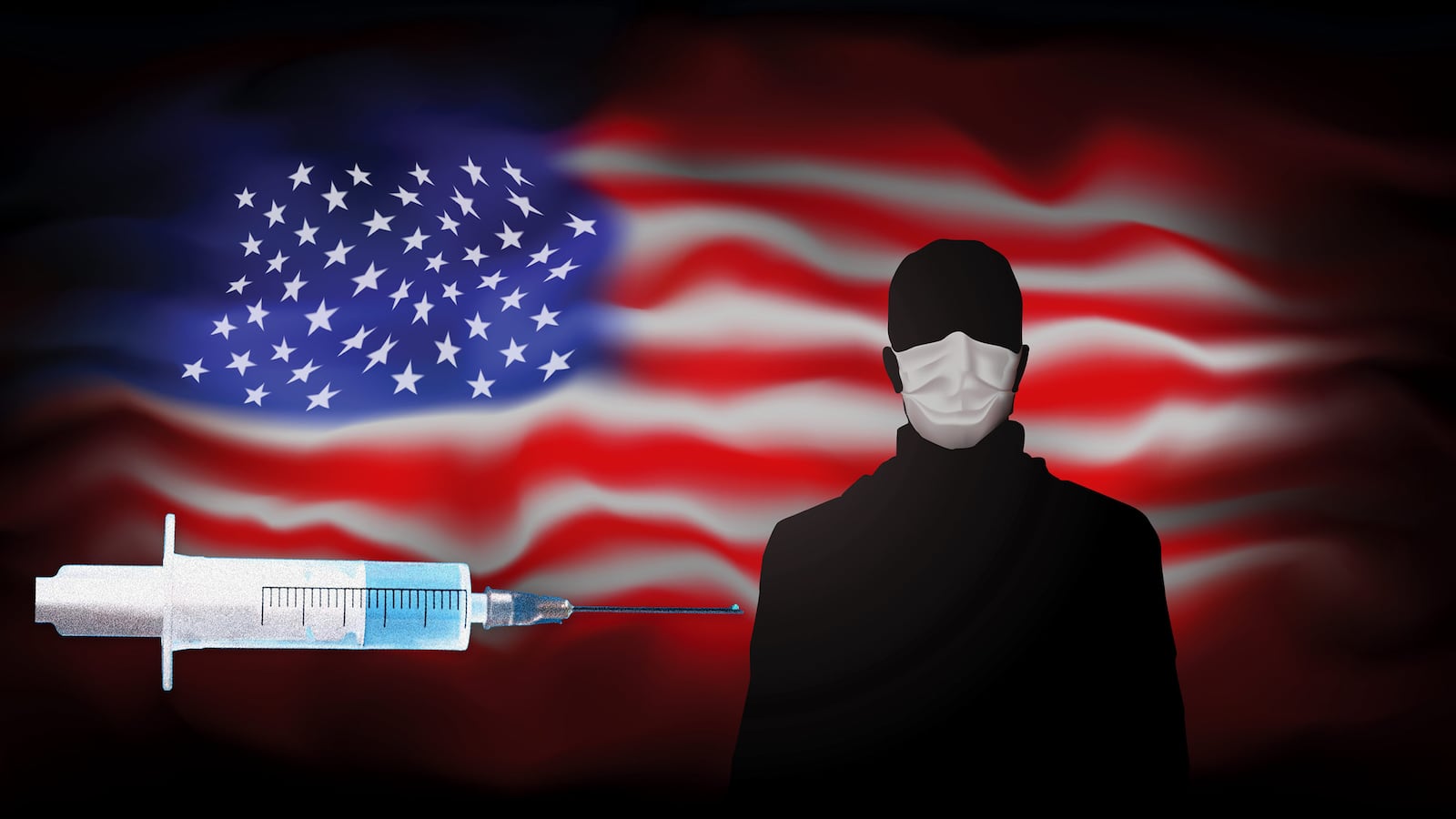A few nights ago, a relative texted about concerns their work friends were having over the COVID-19 vaccine. The message suggested colleagues felt it wasn’t worth it to get the vaccine because epidemiologists say even vaccinated people can still transmit the virus.
In other words, the thinking went, if a vaccine doesn’t guarantee you and everyone around you total immunity, what’s the point?
This relative and their friends were all young essential workers who had been prioritized for vaccination. But the answer to their skepticism was simple: get the vaccine as fast as possible.
Here’s why.
Our best tool for controlling the novel coronavirus is our own immune system. The basic problem is that our immune systems have to see the virus that causes COVID-19 in order to learn how to protect us. Vaccines solve this problem by letting our immune systems see what the virus looks like before we are actually infected, so that it can learn how to fight the virus. Booster shots—both of the two vaccines authorized in the U.S. require one—work like exercise, helping the immune system to further improve its ability to fight the virus.
Through an unprecedented global effort and use of cutting-edge technologies, we have developed a vaccine against COVID-19 faster than previous generations would have ever dreamed possible. The need to quickly reduce mortality with this new tool meant that we had to act before we knew exactly how much it would help curb transmission, as opposed to illness.
The clinical trials have made it quite clear that the current crop of vaccines from Pfizer, Moderna and others worldwide are safe and effective against severe COVID-19 disease. But some questions remained unanswered immediately after their rollout. How long would protection last? Will the vaccine prevent transmission, as opposed to just helping prevent people from getting very sick or dying? Will the virus evolve like the flu, and cause repeated epidemics?
Because of these unknowns, messaging around the vaccine has been cautious. Scientists and public health officials are loath to make statements about the effectiveness of a novel pharmaceutical product without evidence to back it up. That’s particularly true because misstatements, no matter how well intentioned, can undermine trust during a pandemic that has seen the response to public-health guidance be far too politicized.
Case in point: attitudes about masking.
But there’s a downside to this cautious messaging. Lack of certainty or strong empirical evidence is often interpreted to mean that we have evidence that something is not true. This phenomenon is only exacerbated by voices from the anti-vax community and other public-health skeptics. People may hear only that we cannot say the vaccine does not prevent transmission, and not that this is merely because we are waiting for the evidence to come in, or that most experts would be shocked if it did not have at least some effect on preventing contagion.
Likewise, cautious public health advice that is meant to avoid unintentional tragedy, such as the admonition to continue to social distance and take precautions even if vaccinated, often ends up increasing skepticism about vaccination.
The result is, too often, people don’t see why they should be vaccinated at all.
These are not vaccine skeptics or anti-vaxxers who are normally opposed to vaccination. Instead, they’re concerned, thoughtful people worried they might be denying a protective vaccine to someone at high risk, or taking a still-new medical product for little benefit to themselves and others.
It is critical that we get the message to such individuals about both how we believe the vaccine is likely to work based on its underlying biology, and what rapidly emerging evidence is telling us about vaccine effectiveness and safety.
That message is this: Based on the performance of similar vaccines, the fact that asymptomatic people may be less likely to transmit the coronavirus, and a quickly-growing body of direct evidence from trials and campaigns, we are confident vaccination against COVID-19 reduces the chances of transmitting the virus. It may be that protection against transmission is appreciably less than protection against severe disease, but at this point it would be beyond shocking if no impact was there.
Evidence points to natural immunity lasting many months, though reinfection is possible (particularly after mild disease). The vaccine will likely confer a similar length of protection, though this is less clear. Most importantly, even if protection is not permanent, whether due to waning immunity or new variants of the virus evolving to escape growing human immunity, subsequent infections will likely be less severe for those whose immune systems have had the chance to learn a bit about the virus.
Critically, even if vaccines’ effects on COVID-19 transmission are imperfect and temporary, vaccination will still lead to massive decreases in the number of cases if—and only if—there is wide uptake of vaccines in the general population. This is the surest way to get back to a place where we can all take part in the parties, dinners, and simple office cooler conversations we so crave.
So when you have the opportunity to be vaccinated, take it. It will make all of our lives better.








